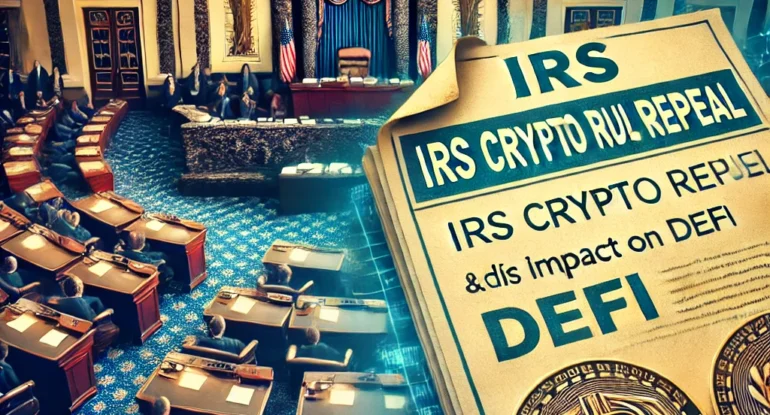U.S. Senate to Vote on Repealing IRS Rule Threatening Crypto and DeFi

The U.S. Senate is set to vote this week on repealing an IRS rule that threatens the crypto and DeFi sector, marking another major shift in U.S. digital asset policy under President Donald Trump’s administration. The vote comes just as the U.S. announced its own Crypto Reserve, reinforcing a pro-crypto stance at the federal level.
What Does the IRS Rule Mean for Crypto?
- The IRS rule imposes increased disclosure requirements on decentralized finance (DeFi) projects.
- If not repealed, it could force DeFi platforms to comply with traditional broker regulations, potentially stifling innovation.
- The Consumer Financial Protection Bureau (CFPB) regulation, which targets tech companies offering digital wallets, is also set for repeal.
Why Is the Senate Expected to Repeal These Rules?
- Trump’s administration has taken a pro-crypto stance, pushing for a less restrictive regulatory environment.
- Senate leaders aim to reverse policies from the previous administration, which were seen as hostile to crypto innovation.
- Senator Ted Cruz previously introduced a Congressional Review Act (CRA) resolution to eliminate the IRS rule, calling it a barrier to DeFi growth.
A New Era for U.S. Crypto Policy?
- Under acting SEC Chair Mark Uyeda, the SEC has:
- Rolled back aggressive crypto enforcement.
- Created a Crypto Task Force to focus on industry protection rather than punishment.
- With the Crypto Reserve and regulatory rollbacks, the U.S. is positioning itself as a global leader in digital asset adoption.
What’s Next?
- If the IRS rule is repealed, DeFi projects could operate with more flexibility, avoiding onerous broker-like reporting requirements.
- The Senate vote is expected this week, and if passed, could usher in a new wave of pro-crypto regulatory reforms.
The outcome of this vote will be critical for DeFi’s future in the U.S., shaping how decentralized platforms are taxed and regulated moving forward.
Hidden Insight
While the IRS rule repeal benefits DeFi, the bigger picture is the deregulation trend under Trump’s administration. If this momentum continues, the U.S. could become a crypto-friendly jurisdiction, attracting DeFi startups and institutional investors that once hesitated due to regulatory uncertainty.









